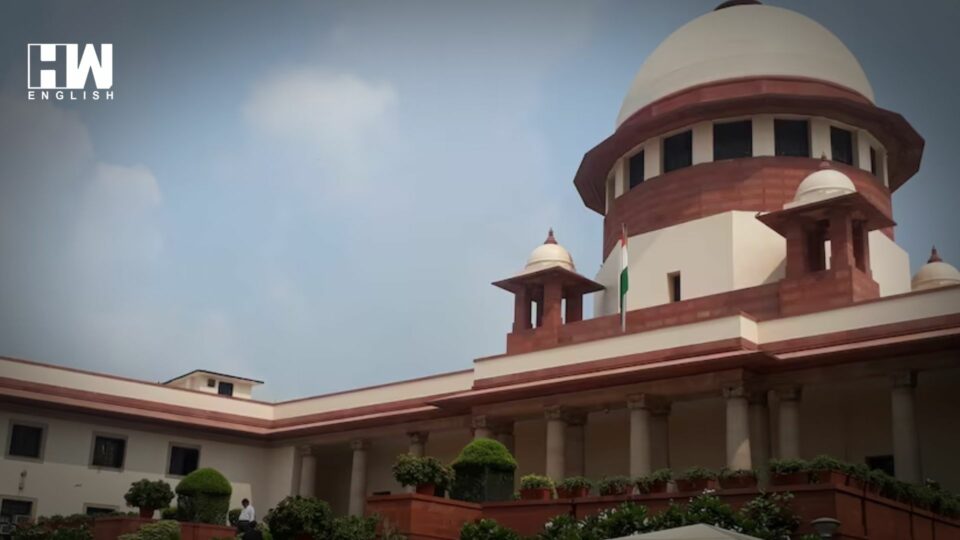In the recently concluded Lok Sabha elections, which marked India’s longest election cycle, the Supreme Court played a notably restrained role in overseeing the electoral process.
Throughout the six-week period, the Supreme Court largely refrained from actively engaging in election-related cases, opting instead to defer to the authority of the Election Commission of India. This decision not to intervene had significant implications for the conduct and oversight of the elections.
According to report from scroll, Legal experts have expressed divided opinions on the appropriateness of the court’s approach. Some have raised concerns that the Election Commission might not have effectively fulfilled its duty to ensure that the elections were conducted freely and fairly.
Last year in March, a five-judge Constitution bench of the Supreme Court had reformed the process for appointing election commissioners to safeguard their independence. It established a committee comprising the Prime Minister, the Leader of the Opposition, and the Chief Justice of India for their appointment until Parliament legislated on the matter.
However, in December, Parliament passed a law that introduced a new committee for nominating election commissioners. This committee excluded the Chief Justice of India, contrary to the Supreme Court’s earlier judgment, effectively bringing the appointment process back under the central government’s control.
Challenges to this law were raised in January this year. A two-judge bench of the Supreme Court declined to suspend the law. Subsequently, in March, under the new law, two new election commissioners were appointed by the Union government. These appointments also faced legal challenges in the Supreme Court.
Despite these challenges, the court chose not to suspend the appointments or the law, citing the impending commencement of the Lok Sabha elections.
In another significant ruling in February, a five-judge Constitution bench of the Supreme Court declared the Union government’s electoral bonds scheme unconstitutional and struck it down. However, the court’s hearings on petitions challenging the scheme, filed seven years ago, were only conducted in October and November last year.
In 2021, the Supreme Court had declined to halt the operation of the electoral bonds scheme, allowing it to continue. This scheme had been operational since 2018, benefiting the ruling Bharatiya Janata Party (BJP) significantly in various elections, including the recent Lok Sabha elections.
During the course of the election, the Supreme Court made few interventions. It granted interim bail to Delhi Chief Minister Arvind Kejriwal in a money laundering case on May 10, allowing him to campaign for the Lok Sabha elections. However, the court denied similar relief to other political leaders facing similar charges.
Senior lawyer Kaleeswaram Raj, who practices in the Supreme Court and the Kerala High Court, emphasized the repercussions of the court’s decision not to intervene in the appointment of election commissioners. This decision has raised concerns about the Election Commission’s perceived inaction against electoral violations by BJP leaders, a concern echoed by retired bureaucrats and a former Supreme Court judge.
Raj stated, “There was a strong case for suspending the 2023 law and maintaining the current Election Commission, as the law clearly undermined the rationale of the court’s previous judgment aimed at ensuring independent commissioner appointments.”
He further critiqued the court’s performance in election matters, highlighting its failure to effectively fulfill its constitutional role vis-à-vis the executive, Parliament, and the Election Commission itself.
Constitutional historian and former bureaucrat SN Sahu emphasized that ensuring the integrity of the electoral process is not solely the Election Commission’s responsibility. He stressed that when the Commission falls short, other branches of government, including the judiciary, must play crucial roles.
However, some legal experts argue that the judiciary lacks the institutional capacity to effectively regulate elections. Ritwika Sharma, Senior Resident Fellow at Vidhi’s Centre for Constitutional Law, pointed out that while Article 324 of the Constitution assigns the Election Commission with overseeing elections, the Supreme Court has generally refrained from intervening in practical election-related issues.
Sharma cautioned against judicial intervention in model code of conduct violations, suggesting it could lead to delays in electoral processes.
Shubhankar Dam, Chair Professor of Public Law and Governance at the University of Portsmouth, agreed that courts should avoid micromanaging elections. He cited institutional constraints as a reason for the Supreme Court’s limited intervention in electoral matters.
While opinions vary on the court’s role, questions persist about its approach to safeguarding electoral integrity and independence. The challenges and legal battles surrounding election oversight continue to evolve, shaping the future of electoral governance in India.
According to Article 324 of the Indian Constitution, the Election Commission of India is vested with the authority and responsibility for the superintendence, direction, and control of elections. This constitutional provision ensures that
the Election Commission has the independence and impartiality to oversee electoral processes throughout the country, from the commencement of polling to its conclusion. This includes managing and regulating elections, enforcing the model code of conduct, and addressing any electoral malpractices.
Given this authority of the Election Commission, is it the reason why the Supreme Court refrained from intervening and making decisions on alleged wrongdoings by politicians and violations of electoral rules?
As an independent media platform, we do not take advertisements from governments and corporate houses. It is you, our readers, who have supported us on our journey to do honest and unbiased journalism. Please contribute, so that we can continue to do the same in future.

